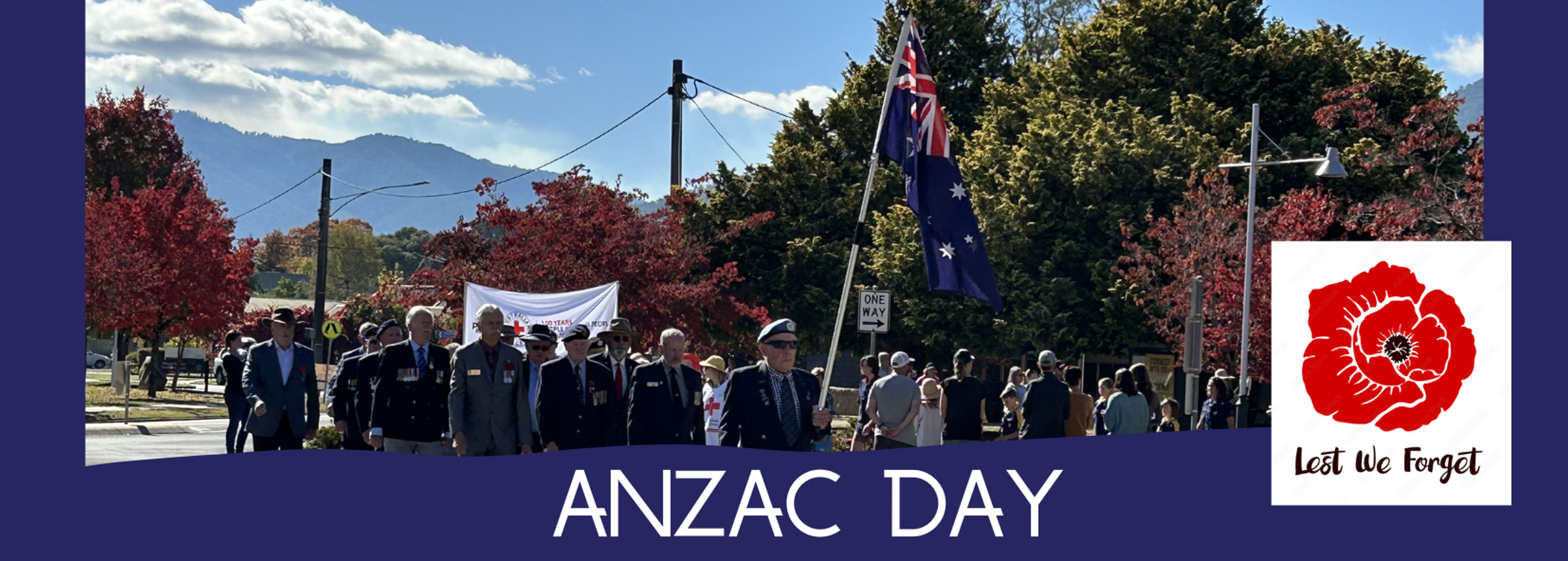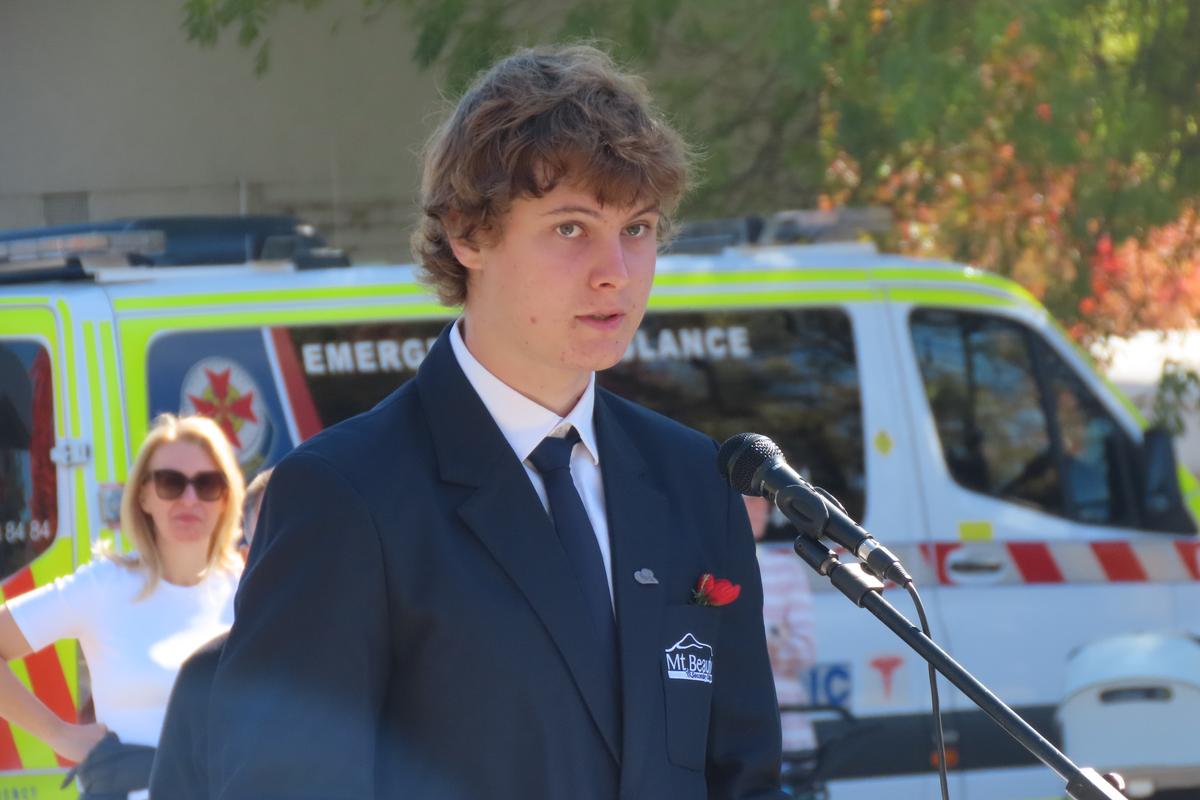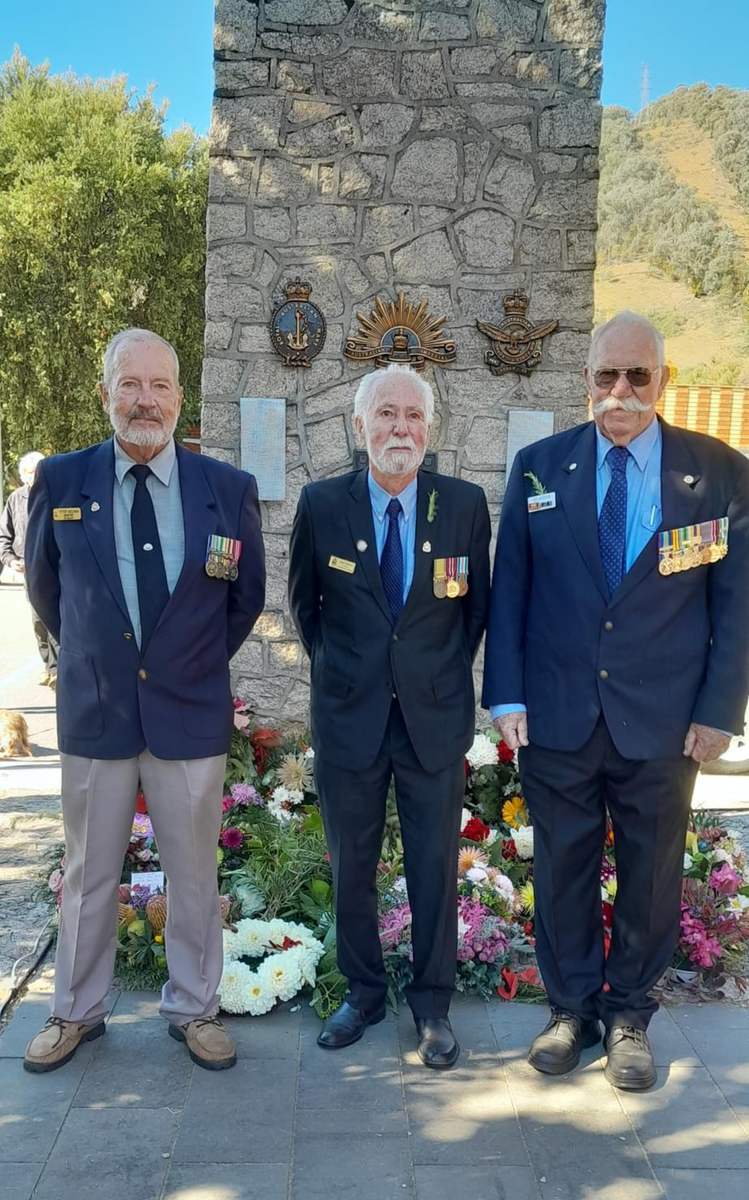ANZAC Day Service

Mount Beauty Secondary College contributed to the ANZAC Day Service, joining fellow community members to commemorate this important date and historical moment. School Captains, Rune and Cambell both spoke well, while other students and staff presented wreaths. Featured here are some photos and excerpts from the speech.
My name is Rune France and together with Cambell Moorman we are very grateful to be able to speak today. We are here today to remember the men and women who served to defend our home. To us, ANZAC day is a day to thank those who placed their lives on the line in order to ensure the peaceful future of our country. Today, Anzac Day in Australia is a day to pay tribute to, and remember all Australians who have lost their lives while serving in wartime.
Cambell:
When I started thinking about writing this speech I went to my parents and asked them about our family history. I found that both my mum and dad had family that served in the Second World War and could have crossed paths, even though they had no relationship at that time.
I learnt more about my pop, William Arthur Moorman who had served in WWII. He was 20 when he enlisted under the surname Morgan in 1941, starting as an infantry member then later becoming a signalman. The reason why he changed his surname was because he was classified as an essential worker. After his enlistment was accepted, he changed his name back to Moorman. He travelled overseas to areas such as New Guinea, the Middle East and Morotai. After the war he returned to Mount Beauty.
In all honesty, leading up to this commemorative day, I knew very little about what it meant for my family members to have experienced or have been in close relation to these significant events. But I’m grateful to have been able to look back into their past and see what being an Anzac meant to them. I have developed a deeper understanding of what this day means to myself and so many other people.
Rune:
When I was asked what Anzac Day means to me, I realised that... that apart from the few history lessons at school I really didn’t know a great deal. My family is originally from England. When I asked my parents if anyone in our family had been involved in any of the wars, I was surprised to see how involved my great grandparents had been.
In particular, my Great-Grandfather was stationed in Singapore. He defended against invading Japanese troops but was captured and sent to Changi - a prisoner of war camp. He worked on the Burma - Thailand Railway from 1942 to 1943.
On the other side of my family, another of my Great-Grandads served as a truck driver in Northern Africa, carrying munitions across the continent. My Great Grandmothers worked in munition factories making bullets and weapons and working the land to provide food for the soldiers and the rest of the country. During the war years, women worked in jobs that were traditional seen as ‘men’s’ jobs to keep the country going.
What we have both discovered through our research for this speech, is that we need to take the time to ask questions of the past and take the time to listen to their stories as it is our history. Our elders have knowledge of events in history, they lived it. We need to learn from the past so that we can move into the future.









